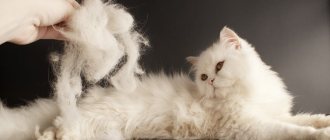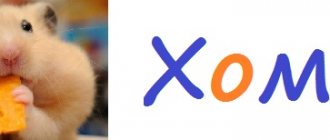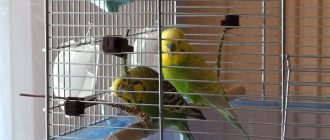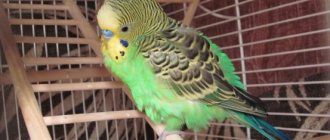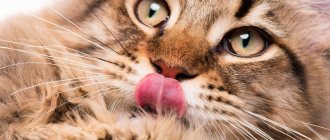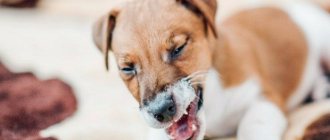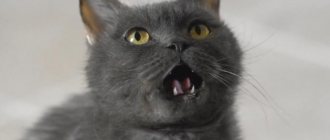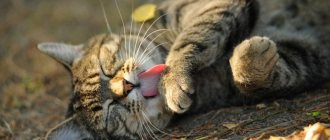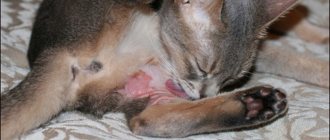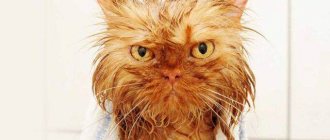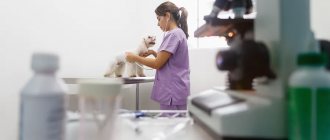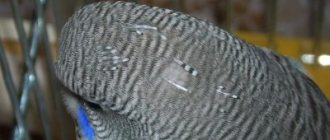Parrots are sensitive, gentle, funny, beautiful creatures. If a parrot begins to pull out feathers and lose its splendor, it means that something has gone wrong in its life, and the reason for this could be various factors. It is important to understand why a parrot plucks its feathers, what danger this poses to its health and beauty, and how to deal with this problem.
Natural causes of the disease
Molting is a natural process in birds. Juveniles may have bare areas of their body when experiencing it for the first time. In adults, baldness due to plucking does not occur.
If owners do not understand the reason why parrots pluck their feathers, it is worth paying attention to whether the bird always has the opportunity to bathe. Bathing is important for birds, as it is for most other living things. Parrots' skin is dry and, if not moisturized, becomes very itchy.
Birds engage in self-cleaning every day. After treatment, the ointment remains on the skin. “Bird tidies up” and, unable to clean “his clothes,” rips them out.
Self-plucking occurs in birds while feeding chicks.
Hygiene
Why does a parrot pluck its feathers when living in captivity? The reason is often trivial. In modern apartments, the animals' cover often dries out. Scales and itching appear, causing severe scratching, as a result of which the parrot pulls out feathers. In their natural environment, birds bathe in dew and rainwater.
In captivity, saucers, small bowls, wet lettuce leaves, and specialized bathing suits sold in pet stores are suitable as bathing containers. During the molting period, animals especially like to “take baths.”
Shedding
Tropical inhabitants shed in autumn and spring. New “clothes” begin to cut through the skin, causing itching. Parrots diligently get rid of “old clothes” and put them away. But when molting, they do not peck the skin to the point of wounds.
Symptoms of self-plucking
- The parrot sits ruffled, indifferent to everything that happens around, most often there are no feathers on the lower part of the wings, belly and chest. In especially severe cases, the entire body, with the exception of the head, becomes naked.
- Plucked feathers are bitten, torn, frayed. At first, the bird pulls out feathers during daily grooming, then does this more and more often and loses more and more feathers. If they are “alive,” bleeding may occur.
- The bird also plucks out newly growing feathers. Sometimes a parrot, frantically pulling out feathers, can also peck at the skin, then extensive wounds appear with exposed blood vessels, and bleeding begins.
Other reasons
A factor why a parrot plucks feathers may be a stressful situation. They are easily susceptible to stress - this is facilitated by changes in the environment. You should take a closer look: perhaps the cage is in a different place, a new mirror or “home” has been purchased to replace the old one, a new pet has appeared that the bird is afraid of, or the actions of small children make it worry.
Considering that these creatures are vulnerable and emotional, stress can be caused by conflicts in the family, jealousy and longing for the owner, lack of sleep, puberty, or an unsuitable partner. The cause of stress can be the loss of your “other half.”
If a bird lives alone in its house, you definitely need to purchase toys, perches, twigs, various bells, and install a mirror in its “home.” The bird will see him as a “friend” and communicate with him. Birds love to communicate, so the owner should talk and play with his pet more often, and let him fly around the room, because in their natural habitat parrots rarely sit still.
Infection
A common reason why a budgie plucks its feathers is chronic infections. In nature, predators hunt weaker animals and birds, so they “hide” diseases. It is not immediately possible to understand that a bird is sick. When a pet sits in a cage, ruffled, plucked in different places, with its eyes closed, the disease is already progressing. If urgent measures are not taken, he will die.
A common reason why a parrot itches and plucks feathers is primary infectious dermatitis. Wounds appear into which bacteria enter, causing a secondary infection.
Self-plucking is often caused by dermatitis. Dermatitis can be caused by allergies, hormonal disorders, lack of vitamins, diseases of internal organs, kidneys, and fungal diseases.
Also, the cause of self-plucking is often a serious disease - circovirus. With circovirus infection (PBVD), which disrupts the development of the feathers and skin of birds, feather plucking of the lower body region is possible. The disease affects the layer of skin epithelium, feather follicles, and lymphatic tissue.
What is the reason why a parrot plucks its chest feathers? It is there that he feels pain coming from within. You urgently need to take your pet to the “bird doctor” and check for pathologies and infections.
Parasites
The culprits why parrots pluck their feathers are parasites. With a strong immune system, the parasites living on the winged body do not cause much discomfort. But when the immune system is weakened, they actively reproduce, parasitizing the skin, beak and legs of the bird.
If there is an infestation with beetles, the animal will become restless and scratch actively. Malophages (down-eaters) are easy to detect upon examination.
Self-plucking is provoked by ticks, ixodid ticks, and gamas ticks, which parasitize feathers and cause inflammation. Inflammation is accompanied by pain and itching, but the appearance of bare areas on the body is unlikely.
Feathered creatures are susceptible to infection by numerous “pests” within the body. Giardia is often parasitic, causing the development of giardiasis. A characteristic feature is plucking under the wings. Cockatiels are the most susceptible to this.
Frustration
Frustration is the most difficult to define. Having a highly developed psyche, with strong emotional distress and lack of satisfaction, “tropical winged inhabitants” are capable of getting rid of plumage, showing aggression and depression. Typically, frustration appears due to a sudden change in living conditions and lack of usual communication. A long period in a state of frustration leads to neuroses and depression in a parrot.
Incorrect content
There are several factors that can provoke a parrot to pluck feathers:
- In nature, these bright birds live in the subtropics, and in poor lighting they can get sick.
- It is wrong to place the cage near batteries, to frequently change the location of the “home” - all this will have a detrimental effect on the physical and mental state of the bird.
- These little creatures can get sick in a cold room when they are overheated. The optimal temperature for keeping is 22-25 C.
- You cannot keep a feathered pet in its “house” all the time.
- You should not feed with the same monotonous food - birds need certain vitamins and microelements at different periods.
- A small, cramped cage with no toys will cause mental disorders in birds.
Unbalanced diet
Ornithological experts say that poor nutrition contributes to the problem. The feed needs to be balanced and should not contain a lot of sunflower seeds. Birds in captivity are unable to expend a large amount of the energy they receive. Accordingly, excess vegetable fat leads to poor health.
Lack of vitamins, minerals and amino acids, protein, especially during the breeding and molting period, leads to self-plucking. The diet must necessarily include washed, finely chopped vegetables, fruits, and herbs. Food from the table - salty, sweet, fried, fatty foods - is harmful. Forbidden and unhealthy foods cause allergies and various diseases of internal organs.
For diseases of the thyroid gland, oats and walnuts should be excluded from the diet. Instead, you should include salad, carrots, beets, and cabbage in your diet.
What to do if your parrot plucks feathers
If the owner notices that his pet is rapidly losing its plumage, it is necessary to establish the cause of this phenomenon as soon as possible. You should check whether your pet’s diet is balanced and that its living conditions are appropriate for the species. It must be remembered that a comfortable temperature for parrots is 20-25°C, air humidity is 70-80%, and the duration of daylight is 12-14 hours. Do not place the cage in a draft, near heating appliances, or in direct sunlight. Cleaning must be done daily. To prevent the bird's skin from drying out, it is provided with a bathing suit or periodically sprayed with a spray bottle.
Communication is very important for parrots. If the owner cannot pay enough attention to the pet, he should get him a friend. However, bringing in a neighbor can cause stress and make the situation worse, so it is necessary to observe the birds at first to determine whether they are suitable for each other. If acquiring a second bird is not possible, the parrot should have enough toys so that it does not get bored in the absence of its owner. In addition, the bird should be protected from stress.
If normalization of housing and feeding conditions does not eliminate the problem, the bird should be shown to a veterinarian. The cause of baldness can be infections, parasites or internal diseases, for example, pathologies of the thyroid gland. In this case, the doctor will prescribe appropriate treatment.
To prevent the bird from continuing to pluck its feathers, you can put a protective collar on it. Some owners treat the feather cover of their pets with special bitter sprays. To reduce itching, the parrot is given calcium supplements and vitamin B15. Adding iodine to the diet helps stimulate feather growth. However, you can completely cure your pet only by establishing the exact cause of self-plucking and choosing the right treatment.
Control measures
Self-medication can be harmful, since it is impossible to independently determine the true cause of plucking. The veterinarian prescribes the correct treatment.
After the examination, it is necessary to help the pet get rid of pain - for this you will need the necessary painkillers and anti-inflammatory medications. Based on the results of tests and examination, the veterinarian, depending on the cause of the disease, prescribes antiparasitic drugs or antibiotics. After treatment, the bird’s physical activity and mental balance are restored.
Previous
DiseasesAntibiotics for parrots
Next
DiseasesWhy is the parrot shaking or trembling and what to do
Treatment methods
To help your parrot not pull out its feathers, it is recommended to spray the feathers with a special bitter composition. Beafar, sold in spray form, is considered effective. The composition contains bitter components that do not harm poultry or humans.
Additionally, you can use the natural antiseptic aloe vera , which not only tastes bitter, but also anesthetizes, stops bleeding, and also softens the skin, relieving irritation.
You can use home remedies, such as making a solution from baking soda. But in addition to using these substances, it is necessary to determine the reason why the bird plucks its feathers.
How does plumage change?
Nature made sure that molting did not affect the cockatiel’s usual way of life. The flight and tail feathers begin to fall out gradually and in pairs, without depriving the parrot of the ability to fly. However, flights become more abrupt. Swiftness contributes to the rapid loss of old feathers. Small feathers covering the entire body of the bird fall out randomly.
During molting, at the bottom of the cage you can notice not only a lot of fallen feathers, but also downy dust, similar to powder. This is a special secret that is produced by the downy feathers of the cockatiel. Also, small white scales are flying from the parrot - particles from the tubes from which new feathers have emerged.
Gradually, the parrot's body becomes covered with stump tubes of growing feathers. If you carefully examine the plumage of a bird, among the formed feathers you can notice new feathers at all stages of development: from unopened to new.
While she is molting, the cockatiel is constantly itching. Sometimes he screams in pain when he touches the tube of a growing feather or strongly pulls an old one. Some pets may scream loudly and ask their owner to scratch them. Due to itchy skin, the parrot becomes restless and may show anger. He looks lethargic and drowsy - he tries to sleep as much as possible, which does not always work.
External and internal parasites
Ticks, various types of fungus, feather and feather eaters, and helminths cause serious discomfort to the parrot. The bird is carefully examined to exclude such a cause of plucking. If there are other birds in the house, when purchasing a new pet, a month-long quarantine is required, and the appearance of the newcomer is studied especially carefully.
The problem can only be eliminated with special chemicals, so if you find worms in a parrot or suspect their presence, you should immediately contact a veterinarian.
Dermatitis
At the moments when your tamed pets pluck their feathers and scratch their skin until they bleed, they can catch some disease that significantly complicates an already difficult situation.
Many factors can cause this condition. Such as lack of vitamins, dry air, etc.
If your pet finds itself in such an unpleasant situation, it cannot do without timely help from specialists. So don't delay your trip to the vet. Surely he will immediately advise you to do a series of tests on your domesticated parrot.
Eye diseases
If your pet was completely healthy, but suddenly began to blink or close his eyes frequently, try to examine his eyes closely
Pay special attention to the absence of foreign bodies: husks, sand, fluff
The speck from the eye must be removed by carefully running a clean cotton pad over the surface of the eyeball
It is quite easy to suspect inflammation: if the cockatiel parrot usually has clean and shiny eyes, then during illness they become cloudy and tears flow. The area of skin around the eyes turns red and pus is released.
Eye treatment is as follows: for treatment, use a solution of sodium sulfacyl (take three parts of water for one part of the drug) or furatsilin. Rinsing and instillation are repeated 2-3 times a day, and at night tetracycline eye ointment is placed under the eyelid.
How to distinguish a bird's self-plucking from its infestation by ectoparasites?
Pere-eaters
Self-nurturing of birds is never associated with feather eaters. In the presence of feather eaters, the bird may become restless, itch, and often clean its plumage, but malophages (down feather eaters) do not lead to the appearance of bare areas of the bird’s body. Bird eaters are always visible to the naked eye, and even more so with a magnifying glass.
Tick mites (Syringophilus spp.)
These mites can cause self-plucking because... The feather mites infect the developing feathers and cause a widespread inflammatory reaction. And the inflammatory reaction is always accompanied by pain. When a bird is infected with a feather mite, the development of the feather is disrupted: the feather is curved, underdeveloped, mainly the flight feathers are affected, bare areas of the bird’s body appear very rarely.
Ixodid ticks
When infected, birds may self-pluck. But more often, when a bird is massively infested with ixodid ticks, the bird does not have the physical strength to pull out the plumage. Ixodid ticks are clearly visible to the naked eye.
Read also: Water as a solvent (article)
Gamasid mites
Birds are itchy and restless. But even with mass infestation by these mites, completely bare areas of the body do not appear.
Depression
Another common reason why parrots pluck feathers is basic depression.
Domesticated parrots are often purchased not only because of their magnificent appearance, but also because of their funny behavior and cheerful disposition.
These birds can have fun all day long and fly around the room, attracting your attention and responding to your reciprocity
However, as soon as you stop paying attention to them, they will immediately begin to feel sad. Surely you could see a picture more than once when a lonely bird retires into its cage and constantly dozes
However, other factors can also cause depression. Such as the death of a couple, change of place of residence, chronic lack of sleep, and even food that is unsuitable for the pet. All of this can cause your parrot to start itching and tearing out its feathers.
And if a caring owner immediately pays attention to this, he will certainly correct the current situation. An experienced breeder will not even need to explain what to do and what to do if his pet becomes depressed
Be sure to place some interesting toys near the bird’s house and inside it that the pet could play with in your absence. In addition, you will need to check the poultry feed and, if necessary, replace it with another grain composition.
Mycoses
Fungal diseases are as common in birds as they are in humans and can cause your cockatiel to pluck its feathers. Infectious agents enter the body of birds through poor water, poor-quality food, and even air. Some types of fungi affect internal organs, others - skin and plumage. Parrots with weakened immune systems are more susceptible to mycoses than healthy birds.
Externally, such lesions look like local redness, which is accompanied by itching, scratching, loss or tearing out of feathers.
For treatment, antimycotic drugs are used, for example, Itraconazole and vitamin complexes that support immunity.
Features of parrot behavior
Parrots are one of the most fastidious and vulnerable bird species in the world. Almost every action they take indicates a change in mood and level of satisfaction, or vice versa, dissatisfaction with something in their life. Any strange movement, sound, or action of the bird may be a signal that the pet is unhappy with something. Unusual behavior may also indicate health problems. Therefore, uncharacteristic actions of a pet need to be identified in time and carefully monitored.
Typically, a parrot's behavior is determined by two types of factors:
- External factors - living conditions, food, change of environment, appearance of new animals or people.
- Biological factors - the influence of age, hormonal imbalances, illness or puberty (this is greatly influenced by the appearance of a partner).
